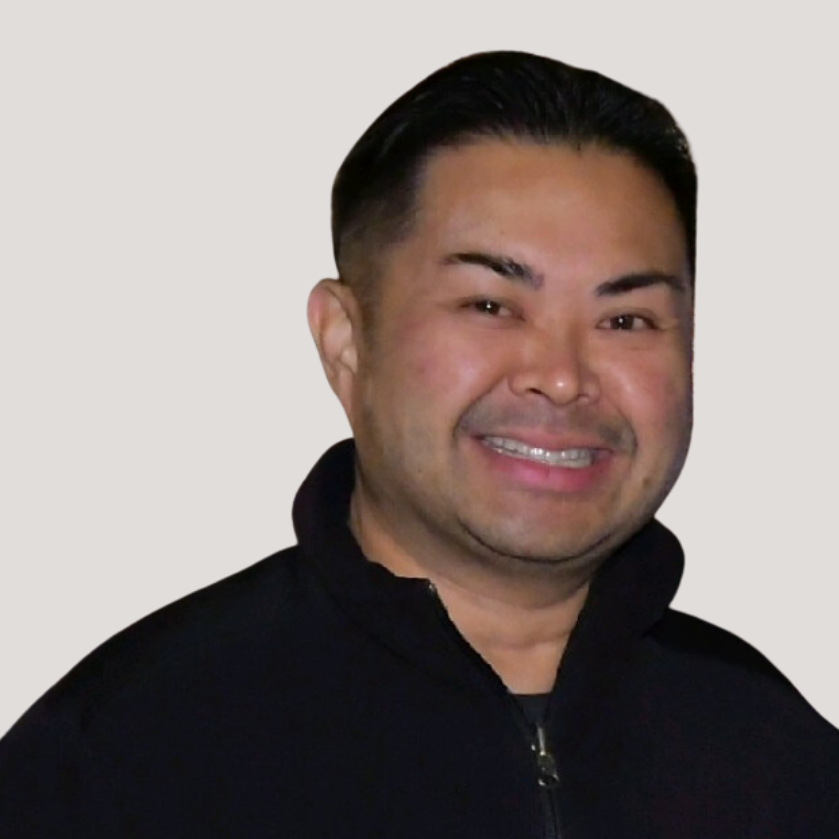Nursing, often referred to as the heart of healthcare, is a dynamic and essential profession that touches the lives of countless individuals. Nurses are compassionate caregivers, vigilant advocates, and knowledgeable healers. Whether drawn to the field by a desire to make a meaningful difference in people’s lives, the potential for career stability, or the opportunity for lifelong learning and personal growth, nursing offers a fulfilling and rewarding career path.

Let’s review this skill set together by discussing how nursing expertise can be acquired, applied, and transformed into a fulfilling career.
What can I do with nursing skills?
Nursing professionals perform a wide range of tasks depending on their specific roles and expertise. Let’s delve into some of the different types and the responsibilities typically associated with nursing sub-categories.
Registered nurse — Registered nurses (RNs) provide and coordinate patient care. They assess patient conditions, record their histories and symptoms, administer medications and treatments, operate and monitor medical equipment, and coordinate care with other healthcare professionals.
Nurse practitioner — Nurse practitioners (NPs) perform similar duties to registered nurses but with additional scope. NPs are licensed to prescribe medications and treatments, order tests, and diagnose patients. They have a larger scope of care due to extensive additional training and education.
Nursing midwife — Certified nursing midwives (CNMs) are RNs with additional pre- and postnatal care training. They monitor mothers and fetuses during labor, assess labor progress, assist with pain management, deliver infants, provide newborn care, collaborate with obstetricians, and educate new parents.
Nurse anesthetist — Certified registered nurse anesthetists (CRNAs) have completed at least a master’s degree in nursing focused on anesthesia. Additionally, they have extensive clinical experience in anesthesia and have passed the certification test to earn CRNA credentials. CRNAs are part of a surgical team that works independently or in collaboration with an anesthesiologist, depending on the state. They carefully administer anesthesia, monitor reactions, identify possible issues or allergies, and educate patients about the effects of anesthesia before and after surgery.
Nurse administrator — Nurse administrators have completed a master’s or doctoral degree in nursing administration and have received Nurse Executive Certification (NE-BC). They are leaders in the hospital and manage a team of nurses, oversee budget and daily operations, ensure procedures are followed, as well as comply with all relevant laws and regulations. Nurse administrators develop business acumen and management skills through their advanced degrees.
Listen as Acute Care Registered Nurse Charles Vergel de Dios shares how he utilizes nursing skills in his practice.

Everything we learn from nursing school, we put into a 30-second meet and greet so to speak. Another skill that we use is patient-centered skill. Basically we put our patients first, before anything else. In the operating room, once we bring them in, we gotta make sure they trust us completely because in a way, their life is in our hands.
Discover your career opportunities
As the demand for nursing grows, so do the job opportunities. Here are a few job titles available to individuals with nursing skills:

Expert advice
“Nursing careers aren’t an A to B with a direct line drawn between them. There are so many different directions to go in. Even if you’ve gone down one path, you can pivot. That’s a common misconception in the nursing field…there’s lots of different ways you can pivot even after you’ve chosen a specialization.”
– Caroline Yacoe, career expert at edX

How can I acquire nursing skills and turn them into a career?
If developing skills related to nursing interests you, we recommend considering these steps:
Research is key when it comes to any career, and a career in nursing is certainly no exception. Take advantage of all the information out there, whether through browsing the internet for job titles, listening to industry-specific podcasts, or getting connected to professionals in the areas or positions that interest you.
Pro tip:
Explore your career possibilities. As part of your research, take every opportunity to learn more about topics in your desired field. Browse the edX course catalog at edx.org to see what nursing-related topics, courses, and programs interest you, and start advancing your career in nursing today.
One key part of the research phase is networking. This simple step is often overlooked and undervalued but can significantly impact your career trajectory. To clarify your career goals and aspirations, you must talk with professionals about what the work looks like.
You open a door of opportunity in your career by reaching out to professionals in your targeted fields, positions, and companies. Connecting with nursing professionals who could provide hard-to-find intel about the specialties or organizations of interest is invaluable.
Pro tip:
We highly recommend scheduling informational interviews to learn from and connect with nursing professionals and hiring managers to gather information. These contacts can help you learn new skills, offer advice, and share job opportunities.
Check out our Networking Guide and Outreach Templates and Resources for help getting started.
To supplement your understanding of what others are doing professionally, gain clarity on your own goals and aspirations. Ask yourself what interests you about nursing — the possibilities are endless.
There are a number of transferable skills that will serve you well in the nursing industry and beyond, as well as clinical skills that you’ll need to hone if you choose to pursue nursing as a career.
Transferable skills and qualities
Transferable skills are skills you carry from one job to another, enhancing your adaptability and versatility. Here are a few transferable skills that complement nursing well:
- Detail-orientation
- Critical-thinking
- Collaboration
- Empathy
- Communication
- Adaptability
- Flexibility
- Observation
Field-specific skills
Field-specific skills are vital in nursing as they equip you with the necessary tools to effectively address nursing challenges. These skills enable accurate record-keeping and patient safety, which are critical for responding adeptly to nursing issues. Here are a few examples of these skills:
- Providing high-quality patient care
- Taking and monitoring vitals
- Documenting family history
- Diagnosing illnesses and injuries
- Developing treatment plans
- Collaborating with the care team
Pro tip:
Another way to identify which skills match your career aspirations is to look at job postings that interest you. Take note of the skills listed in the descriptions. These are the skills that will qualify you for these roles in the future.
The different types of roles within the nursing field require varying levels of education, training, licensure, and certification. Once you’ve explored which type of nursing role you want to pursue, you’ll need additional research to determine the level of clinical training to advance in that path. If you’re in the early stages of exploring, here are some options to informally explore more about the nursing field:
Self-education — If you want to learn asynchronously, informally, or casually about nursing career paths, self-education is a great place to start. Many approaches to this learning style support career goals, budgets, and time commitments. Here are some to consider:
- Informational interviews: Gain a greater understanding of nursing by speaking to nurses. Leverage your network or LinkedIn to see if you can chat with any nurses to learn more about their career trajectory, likes and dislikes within the field, advice, and insights.
- Online courses: If you prefer a more structured or socialized learning experience, online courses might be a good option. edX.org offers several instructor-led and self-paced nursing courses that may be of interest.
Degree programs — Pursuing a degree in nursing offers the opportunity to pursue the field of nursing formally and begin the journey towards becoming certified and registered to treat patients after completing your education. It will equip you with the knowledge and skills to address patient challenges and engage you in a rewarding career dedicated to improving the lives and health of your patients.
Interviewing for nursing positions will likely rely on behavioral interviewing questions. Stay informed about nursing best practices and practice formulating your responses in an organized, thoughtful manner. If you have experience handling a challenging patient situation, be ready to highlight the scenario and the impact that you have made. Potential employers will want to know both your nursing skills and transferable skills. Remember to be authentic and exude confidence during your interview.
Once you achieve your nursing career goal, celebrate your success. The career journey is full of ups and downs, and every victory deserves acknowledgment.
With that said, your journey doesn’t end here — it’s only just beginning. Give yourself grace and understand that careers are not linear. Here are some ways you could continue growing your nursing skills:
Continued learning — Always reference our course catalog on edX.org for continued learning opportunities. It never hurts to brush up on your skills, expand your knowledge within the industry, or learn about other subjects that could apply to your work, interests, or something in between.
Promotions — As the nursing industry continues to grow, so will future job opportunities. To position yourself well for promotions, you will need to stay current on continuing education opportunities and develop leadership skills.
Promotions in nursing:
Here is an example of a senior role that you may want to work toward as you advance your career in nursing:
Clinical Nurse Leader: Clinical Nurse Leaders (CNLs) are responsible for overseeing the care of a group of patients. They implement evidence-based best practices for improving patient care and outcomes, provide direct clinical care in complex situations, and collaborate with many clinical and administrative professionals. CNLs have clinical decision-making authority to change a treatment plan if necessary.
Pivots — Make sure to regularly check in with yourself and your satisfaction with daily tasks. If you are dissatisfied in your current role, take stock of what you like and dislike about it; keep your eyes out for opportunities in your department, specialty, or organization, and pursue career pivots that optimize your background, skill set, and interests.
What could my career look like with a nursing skill set?
It is difficult to say exactly what your life would look like with a nursing skill set because the subfields and settings are varied, but we can provide some insight. Consider how these may factor into your life plan:
Opportunity to make an impact — Nursing has the potential to positively impact our community in many ways. Consider how you could use nursing skills to promote maternal health, care for geriatric communities, triage patients in emergency settings, or reduce the burden on physicians.
Life-long learning — Nursing professionals must stay up-to-date on industry standards and best practices, as well as changes in policy or technology. Nursing professionals can expect a career that provides many learning opportunities.
Expert advice
“You are the eyes and ears of the doctor because you are with the family and the patient for 12 hours. What you see could be different than what the doctor sees when they come in…Your knowledge of what you’re seeing the patient do throughout the day could really change the plan of care….but also, as a nurse, you have all these different skill sets because you’re not just the nurse, you’re wearing multiple different hats. As the educator, you could be a parent, you could be a friend, a social worker, a therapist, so you have all these different roles, and that’s unique as a bedside nurse because you’re able to provide so many different things that not every other profession can.”
– Allie F., pediatric nurse

What are my next steps?
Learn more about nursing
Register for a course on edX.org to learn about a variety of topics within the field of nursing such as “Global Public Health” or “Essential Competencies for Nurse Preceptors.”







